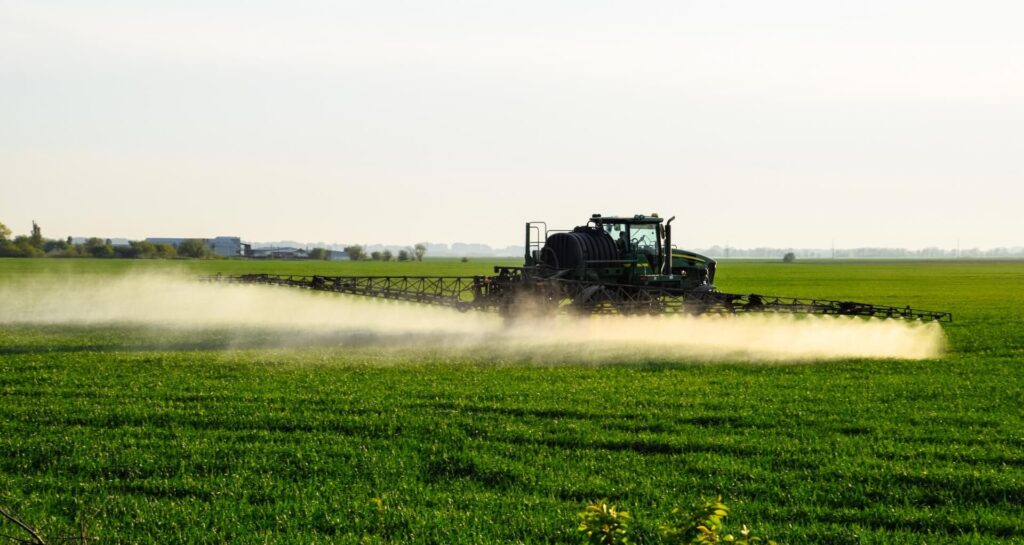Glyphosate – this omnipresent word may ring a bell for many. But what exactly does it mean, and why should you care? As an active ingredient in many popular herbicides, including Roundup, glyphosate plays a significant role in agricultural practices worldwide. However, this broad-spectrum herbicide’s potential health consequences are triggering increasing concern and debate among scientists, health professionals, and the public. In this article, we delve into the heart of glyphosate’s potential health risks and provide practical advice on how to minimize exposure.
Glyphosate – What’s the Big Deal?
Glyphosate operates by obstructing an enzyme necessary for plant growth, thereby eliminating a wide array of plant species. It’s often sprayed on genetically modified crops that have been designed to withstand its effects, making it an integral part of the global food industry. However, its omnipresence also means frequent human exposure, leading to several health concerns.
Health Risks Associated with Glyphosate
Cancer Risk
In 2015, the International Agency for Research on Cancer (IARC), a division of the World Health Organization, labeled glyphosate as “probably carcinogenic to humans” after analyzing several scientific studies. The primary cancer concern is non-Hodgkin lymphoma, a blood cancer type [1].
Endocrine Disruption
Another body of research indicates that glyphosate might disrupt the endocrine system, which could lead to reproductive and developmental issues. It was found that glyphosate could stimulate the growth of human breast cancer cells [2].
Potential Kidney and Liver Damage
A 2015 study on rats found that prolonged exposure to low Roundup doses (below those permitted in EU drinking water) could result in liver and kidney damage. Although the effects were observed in animals, they prompt critical questions about glyphosate’s long-term safety for humans [3].
Microbiome Disruption
Glyphosate also has the potential to upset the gut bacteria balance, crucial for overall health. One study showed that it could harm honeybees’ gut bacteria, contributing to the decline of these essential pollinators [^4^].
Neurodevelopmental Effects
Emerging research hints at a possible connection between prenatal glyphosate exposure and adverse neurodevelopmental impacts, including attention deficit disorder. This research underlines the urgent need for further investigation into the potential long-term effects of glyphosate exposure [5].
While these findings are based on sound scientific research, their implications for human health remain a contentious issue. It’s essential to note that some bodies, like the U.S. Environmental Protection Agency (EPA), believe that glyphosate isn’t likely carcinogenic to humans when used as instructed on the product label.
Minimizing Glyphosate Exposure
Despite the ongoing debate, it’s understandable if you wish to err on the side of caution and reduce your glyphosate exposure. Here are practical ways you can do that:
Organic Food Choices
Since glyphosate is mainly used in conventional agricultural practices, one of the easiest ways to minimize exposure is by opting for organic food. Organic farms don’t use glyphosate, so organic food is less likely to contain glyphosate residues.
Home Gardening
Growing your own fruits, vegetables, and herbs can be a rewarding way to control what goes into your food and reduce glyphosate exposure.
Filter Your Water
Glyphosate can end up in drinking water through agricultural runoff. Activated carbon filters, often used in water filtration systems, can remove glyphosate from your water.
Keep Informed about Environmental Policy
Support regulations that promote the responsible use of glyphosate and other potentially harmful herbicides. Stay informed and use your vote to encourage policies that prioritize environmental and public health.
Looking Ahead
In conclusion, while the debate surrounding the health risks of glyphosate exposure continues, it remains prudent to exercise caution. By making informed choices about what we eat and how we live, we can help protect ourselves, our families, and the environment.
Sources:
[1]: IARC Monographs Volume 112: evaluation of five organophosphate insecticides and herbicides, 2015.
[2]: Thongprakaisang S., et al. Glyphosate induces human breast cancer cells growth via estrogen receptors. Food Chem Toxicol. 2013.
[3]: Séralini, G-E., et al. Republished study: long-term toxicity of a Roundup herbicide and a Roundup-tolerant genetically modified maize. Environmental Sciences Europe, 2014.
[4]: Motta EVS, et al. Glyphosate perturbs the gut microbiota of honey bees. Proc Natl Acad Sci U S A. 2018.
[5]: von Ehrenstein OS, et al. Prenatal and infant exposure to ambient pesticides and autism spectrum disorder in children: population based case-control study. BMJ. 2019.
* All information is subject to change. Images may contain models. Individual results are not guaranteed and may vary.

